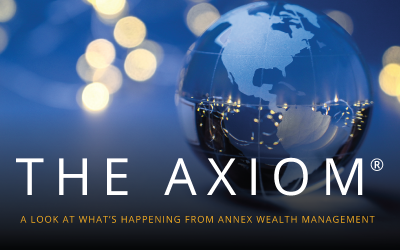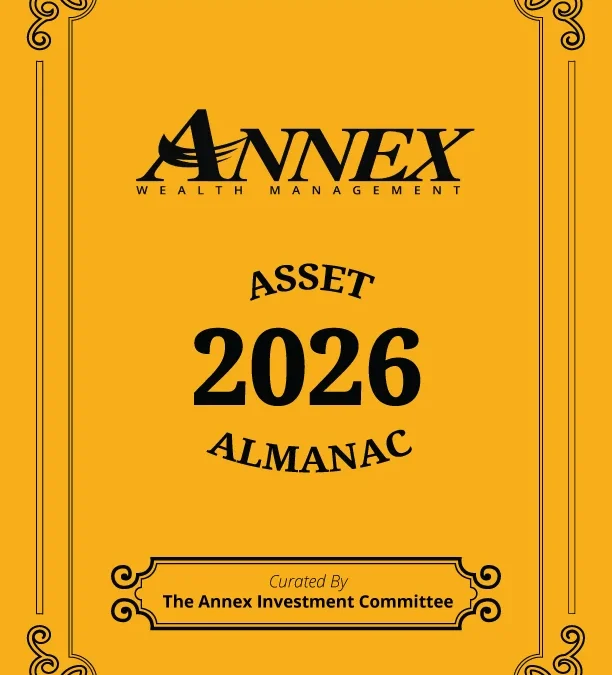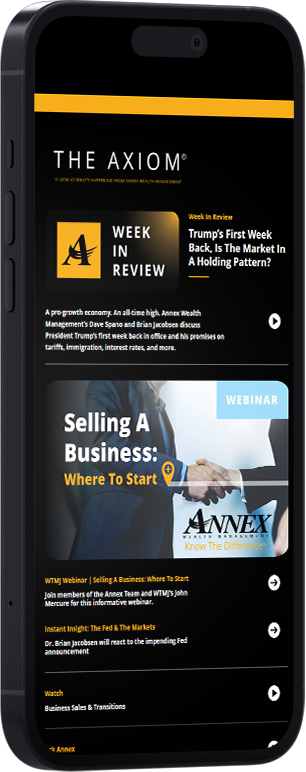Here’s what some local economists say about what’s been going on with the stock market
Milwaukee Journal Sentinel
First tariffs were placed on dozens of countries and the stock market reacted poorly. Then President Donald Trump said it was “medicine” and encouraged Americans to hang tough. And then Trump delayed the tariffs, except those on China, for 90 days, which cause the market to shoot up.
There could be more changes coming and that could continue to roil financial markets. The uncertainty has caused frustration among many in the business community.
“This really did start in the White House, and it can end in the White House,” said Brian Jacobsen, chief economist with Annex Wealth Management, based in Brookfield. “That’s part of what makes this difficult for the markets to figure out.”
Following the latest changes on Wall Street can be difficult for just about everyone who doesn’t work in the financial industry.
We talked to a few local investors and economists about what’s been going on and how it has changed, or not changed, their approach to the market.
Here’s what they had to say:
Should I sell my stock and get out?
Short answer: No. Stop. Don’t do that.
Most people who have a 401(k) or money invested with a firm don’t live and die with the market’s performance on a day-to-day basis.
“That’s why you have a financial plan,” said Brent Schutte, chief investment officer at Northwestern Mutual. “It doesn’t mean we won’t make shifts or changes. We do think longer term, but we may try to take advantage of a downturn … there are parts of the market that are cheaper that I want to tilt towards incrementally.”
“It would be rare that I would make some big investment change based on a government policy,” said Dominic Ceci, chief investment officer for Racine-based Johnson Financial Group. “We’re paying attention to it but, in general, most people are investing in a time period that’s more than a couple of months.”
So why do these tariffs now?
That’s a more difficult question to answer.
On the campaign trail, Trump talked about imposing tariffs on countries he deemed as ripping off the American people and American businesses. So many experts believed some kind of trade policy would happen once he got into office.
“This could reset where we start with negotiations,” Jacobsen said, adding in the past negotiations with other countries included lower levels of tariffs in efforts to gain access to different markets in different countries.
This is a different way to approach international trade.
“Well, if you flip that and you start with high tariffs and the promise of lowering the tariffs if they come to a deal, maybe that can speed up that process,” Jacobsen said. “I’m viewing this as a shock — quite a bit of a shock — but then hopefully a way to kick-start those negotiations and to get to a faster, more positive resolution, than the slower, much more protracted negotiations that we’ve seen over the last few decades.”
But this situation originated in the White House and there’s only one man who can swing the market based on a feeling. It might not be a negotiation.
“I still think there is more volatility in the market in the coming weeks,” Schutte said. “People are underestimating that these are just a negotiation and that if, for example, someone offers something that (tariffs) are all going to go away. I think the bottom line is, no matter what, we’ll end up on that 10% baseline tariff and that there are higher tariffs on certain countries and that there are tariffs on sectoral goods. Autos. Semiconductors. Maybe pharmaceuticals. Maybe steel and aluminum. That is the reality. And that is a much different environment that we’ll be in.”
Could this be part of a bigger plan by the Trump administration?
Like everything else, it’s a possibility.
The administration is hoping to pass a tax cut that has been estimated to add about $3.8 trillion to the deficit over the next 10 years, according to the tax policy center at the Urban Institute and Brookings Institution.
And while many elected officials have questioned how the tax cut could be paid for, one option could be the revenue generated by tariffs.
“In theory it’s revenue coming in and they can use that for something,” Ceci said. “And there are other things they want to do that will reduce revenue, like the tax cuts, and so that’s the reason you do this first. Because now you can point to this and say, ‘Hey, we raised revenue so when the tax cuts reduce revenue, we already paid for it with that thing.’”
But it might not have anything to do with taxes and could be part of a different plan for the Trump administration.
“When they talk, they talk about it being not just about Europe getting rid of their tariffs on autos, but other things that they need to do to satisfy what they’re looking for,” Schutte said. “Which, I think, is still a bit unknown what those things are. Which makes it difficult to come to some sort of resolution in the near term, which I think is what the market is hoping for.”
What has this volatility done for businesses?
In general, nothing positive.
“We traded one type of uncertainty — trade uncertainty — for a different type, which is about growth and inflation,” Jacobsen said. “And that’s kept a lot of CEOs really sitting on the sidelines about expansion plans.”
American consumers might not feel the impact at the store but businesses looking to expand operations and hire workers are looking at the future and finding it hard to predict.
“There’s tariffs on everyone. You can’t go anywhere to get back to zero, really,” Cici said. “If you were going to move from China to somewhere else, you’re moving from one high tariff rate to another high tariff rate, potentially. You’ll get the incremental difference of going down from China’s rate to whoever else. But it’s still a higher rate than probably what you were paying three months ago.”
So what comes next?
That’s the question economists, investors and business leaders are answering for themselves.
“Opinions are kind of all over the map as to what the impact of this stuff will be,” Ceci said. “Honestly, that is the crux of the problem … no one really agrees on what the impact will be.”
Schutte wondered if the volatility was going to cause a “wealth effect” in which wealthier consumers pullback on spending.
“Because you’ve already seen lower- and middle-income consumers pull back over the last year because their excess savings have dwindled, because they have credit card debt that now has a higher interest rate,” Schutte said.
But the last several days have caused people to evaluate their own financial situation for themselves.
“We get more phone calls during this period of time for people looking for financial planners because they realize over the years they built their own portfolio, they don’t really know what they have and they don’t know if it fits with their longer-term financial goals,” Jacobsen said. “Sometimes it takes a shock like this to wake people up.”







